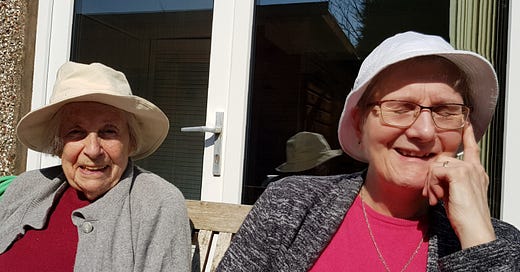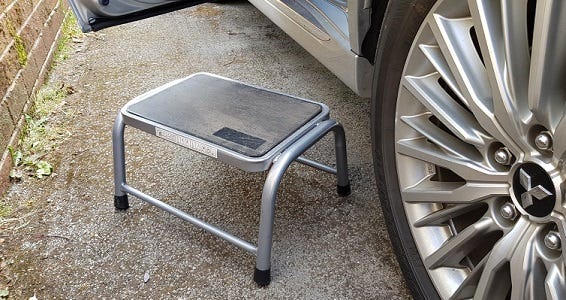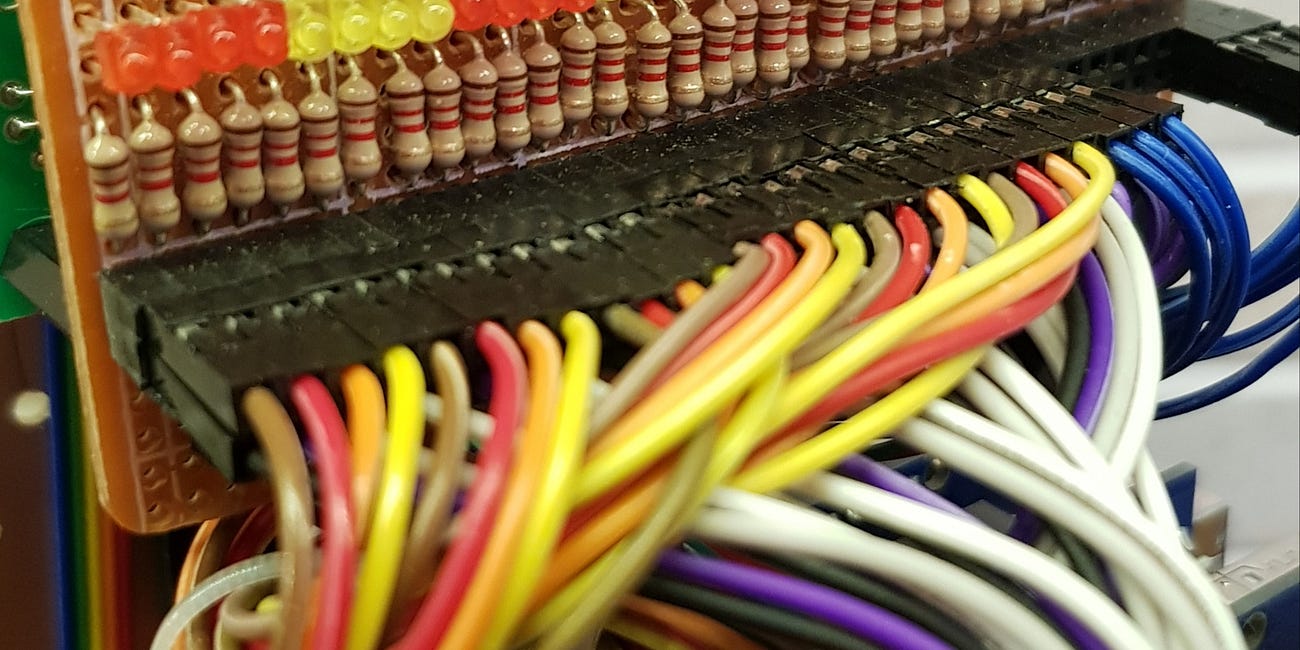100!
What better excuse than a 100th birthday to revisit my May 19th article promoting understanding of unpaid care giving.
Everyone says, “Isn't she wonderful for her age?". She is. Of course. I would not be surprised if she outlived both me and my wife. I know… there seems to be something self-fulfilling about that prophesy.
Why…?
My first COPING WITH CARING Substack post outlined that I’m unpaid care giver for two vulnerable ladies, my mother (then aged 99) and my wife aged 67.
Care giving creates a new, unexpected, hectic chapter in the carer’s life. Familiar home routines are scrambled, Sky Sports is cancelled, and “want-to-do” lists are consigned to the waste bin.
My wife’s life was turned upside down by multiple sclerosis more than 30 years ago. She was a State Registered Nurse and Community Midwife. Today, she busies herself with the garden and crafts, and helps as much as she can in the kitchen. I can see her enduring frustration and pain every day.
My relationship with my (adoptive) mother was never great. I was a “strange" child. I have an abiding childhood memory when she told me that our admittedly mischievous dog had:- “Gone to live on a lovely farm…” She remembers little of those times.
So, why am I now her care giver:-
Necessity?
Obligation?
Our utterly dysfunctional system of social care?
None of those. Nor is it about love, or pity, or even duty. I can best describe it as empathy and compassion for two vulnerable ladies close to me, who need my help. This has to be empathy and compassion which wholly respect their own human individuality and dignity.
Help and Support
Do I get practical help and support?
Nope.
Not one iota…
Unless you count my wife’s fortnightly visiting physiotherapy sessions, which she needs to help cope with her MS, and which we pay for. I clear away dining room furniture to make space for the guy’s fold-up physio bench.
And a lovely lady who also comes in fortnightly to clean for us.
I once emailed the local Care Coordinator to ask if I could discuss a contingency plan in case I ceased to be able to care. More than 3 years later, no reply.
On rare visits to the local GP Practice they quiz me:-
“Who is it you care for?”
“How old are they?”
One day, we queued in the street with wheelchair and walking frame for vaccinations. My wife was distraught. The three of us struggled in. I hope they do not treat people like sheep again this year.
There was a large “Age UK” publicity banner displayed in the waiting area. Item 1 on their list was “Carer Health Checks”…
…Not for me, it seems. At a previous encounter the GP gleefully propelled his chair across to his screen and banned me 😅, with a smug smile which said “Gotcha matey, you’re not a carer, you’re a time waster”.
Not that I minded too much. 20 minutes with a dour nurse wondering why I was there, and whose top lip curled at regular intervals, was a waste of everyone’s time.
And so, for whatever reason, they refuse to believe I’m a care giver.
Could it be, a recognition that there are good male care givers out there would be an irksome deviation from somebody’s radical feminist ideology…?
Surely not.
Financial
I’m more fortunate than many UK carers, because care giving has not, so far, stretched our household finances to breaking point.
I obtained a Lasting Power of Attorney (LPA) for mother’s property and financial affairs from the Public Guardian’s Office. The on-line process was straightforward. However, registration of said LPA with HSBC Bank was protracted and frustrating. Registration was impossible to complete online or by telephone, and required at least one personal visit to a “local” branch.
Here are two LPA-related points to bear in mind:-
Two (HSBC) banking apps cannot co-exist on the same smartphone, nor can one phone app be used to manage two different accounts. So, managing Mother’s bank account requires an online PC and a physical secure access keypad.
An LPA requires the Attorney to represent the Donor. It does not permit the Attorney to countermand a decision which the Donor has the mental capacity to make, no matter how ill-advised you think that decision may be. Without delving into the detail here, my 59 year old youngest brother never left home. A continuing situation to which Mother inadvertently gave her blessing, and one which, sadly, another brother and I will have to unravel when the time comes for us to act as her executor-trustees.
Happiness
Care givers strive to be super-human. We morph on demand into attendants, comforters, dressers, mediators, mentors, nurses, podiatrists, psychologists, waiters, weightlifters and more. I try... But cannot excel in all those roles. My personal bandwidth has limits, and my age is beginning to tell:-
I talk to myself a lot.
I talk to the dog a lot. (He’s very supportive…)
I capture new ideas and thoughts by writing them down before they fade away.
That they are washed, dressed, fed, watered, tea’d, cared for, kept safe, is not enough. My most important measure of success is whether those I care for are Happy. I try to understand what makes them Happy. If you have a mind to, you can explore and apply a multitude of pillars and theories from Aristotle et al. For those I care for, Happiness seems to work at two simple subjective levels - separate episodes of well being, and more enduring feelings of positive life satisfaction.
And there, I find a paradox. My mother’s declining faculties seem to allow her enduring happiness. She’ll say:- “I’ve had a good day today”, when she’s done little more than binge watch Britbox and Sky News. Is that a “legitimate” experience of happiness? I think it is.
I’ve tried to engage her with books, crosswords, jigsaws and painting to no avail. She’s happy when sneaks a mouthful of marmalade straight from the jar at breakfast, has a jam tart with her 3pm cup of tea, has strawberry jelly with her fruit cocktail in the evening, or gets to sit in the summerhouse on a fine afternoon. But what she loves most of all are gnomes, her garden gnomes.
For my wife, with mental faculties fully intact, enduring happiness can be elusive. She regrets ever agreeing to my mother moving in, and that can be a source of friction. She sometimes finds dealing with Mother’s early signs of dementia difficult, when she may be in pain herself. I will never knowingly abandon either of them to our system of social care. My wife loves her greenhouse, her Koi, Orfs and Grass Carp in our pond, Whatsapp videos of the grandchildren, and her crafts. And she chairs the local “Country Markets”. These things make her happy, or at least, contented.
The house environment is such an important catalyst for happiness:- our dog, the nightlights lighting their way in the dark, the fresh flowers I buy every week.
From time to time, I ask both ladies the question. From mother - always an emphatic “Yes”. From my wife - usually a more hesitant “Yes”. No sign of deference or sarcasm. By no means complacent, that’s probably the best I can hope for.
You might like one or more of my other articles…
Helpful Things
There are simple low tech items that can make a big difference when you are a carer. Here are a few I use. This whistle-stop tour is not intended in any way as promotional… Plug-in Night Light A plug-shaped light which fits in a mains socket to light automatically when darkness falls. The gentle glow in bedroom and hall provides a safer, comforting en…
Can I Trust the NHS?
“Terrible Culture of Blame" When did:- “Don't worry, we will absolutely keep you safe" ¹ Change to:- “Don't worry, if we accidentally kill you, we will definitely learn lessons from it". In March 2016 then UK Health Secretary Jeremy Hunt said “It is a scandal that every week there are potentially 150 avoidable deaths in our hospitals and it is up to us a…
Nearly Talking of Robots
Whilst I don’t have a great deal of time to devote to them nowadays my robot and train projects continue (slowly) as my occasional escape from care giving. Last night, I became so frustrated with my inability include a short video clip in a reply to a note (most likely operator error), that I decided to create this new post.










